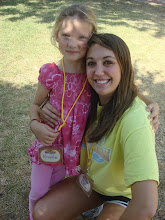When observing childhood literature there are many different theories and ideas that are important to keep in mind when it comes to analyzing what is being said. One theory that can be gathered from “Children’s Literature for a New Nation” by McLeod is that children are always taught a moral lesson. You will tend to see such things as the good always end up with the better outcome, while the bad always receive harsh discipline in what happens. In McLeod’s work it is stated that “they were written to teach, and specifically, to teach morality.” It is plain as black and white. If we think back to simple stories we were told as children I guarantee you can think of at least on with some sort of a moral lesson.
A main idea can be found from Sanchez-Eppler’s work Dependent States: The Child’s Part in Nineteenth-Century American Culture is that the children are important to the society, thus yielding great control. I believe that is why children’s literature is taken so seriously and has such deep meanings. In Sanchez-Eppler’s work it says, “Children can simultaneously and seamlessly function as both objects and subjects of social control, since in their state of dependency it is precisely what they lack that makes them rhetorically efficacious.” They hold the future of the society.
Another thing to keep in mind is that there will be few details. This is done to keep the work able to be identified with many different cultures and areas. I think it is also done to keep the children’s focus on the moral that is the main goal to be learned. In McLeod’s work it says, “No doubt because their purposes were so selective, authors gave scant attention to the settings of their narratives.”
Keeping in mind that in that time period children were just being used to make adults. In Sanchez-Eppler’s work it says, “Children matter then not as selves, but as stages in the process of making an adult identity.” Children were dependent and so they were not considered an actual person.
One last thing to keep in mind is that all of these works are usually written by adults causing them to be written from the viewpoint of what is felt about what happens, not just told what happens. We see plenty of own thoughts on a subject just from the way an author writes his/her story. In McLeod’s work it backs this thought up, “What the fiction speaks of is not so much what happened in the period as what many quite representative middle-class Americans felt about what was happening.” When reading children’s literature there are many different things to keep in mind to make the understanding of what is really being said or taught.
Wednesday, January 20, 2010
Subscribe to:
Post Comments (Atom)






Hey Effie! This post was really well-written and thought-out. You pulled in some information that we discussed in class, but added your own personal twist. Also, you came up with some great theories that I didnt notice as I was reading the assignments! I particularly liked your theory that because children were seen as the future of American society they held "great control". Most people never truly see the importance of educating their children or spending time teaching them right from wrong, so I am glad you touched on this subject! Keep up the great work & I will see you in class & around Moncrief!
ReplyDelete-Carly
I totally agree with you that much of the literature from the past and even today is meant to teach some kind of moral whether big or small. I also found it interesting how you perceived that the children are the ones who had more control than the adults from Sanchez-Eppler's work because it is another way of seeing the role of children in American society. Personally, what I got from Sanchez-Eppler was that children are so dependent on their parents and adults in general that they are controlled by adults and have to do what their parents or anybody older than them tells them to do. As a result, adults try to create good little people to further insure that the future of the nation will be in good hands. Overall, I really liked your theories.
ReplyDelete